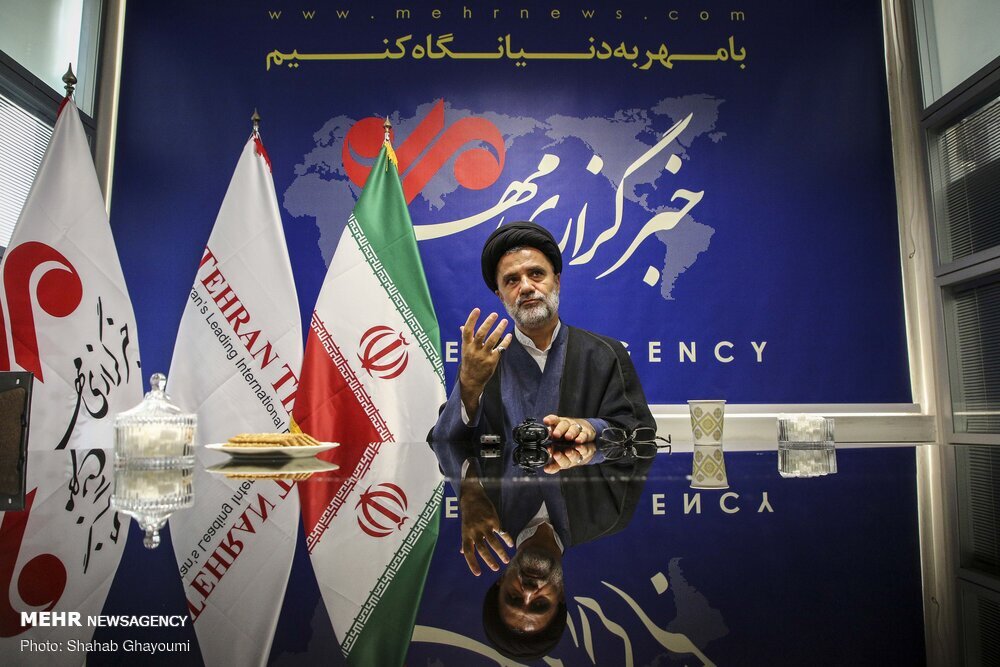MP: Iran turned down U.S. request for direct negotiations in Vienna

TEHRAN — A legislator has said the U.S. delegation had asked Iran’s top negotiator for thirty minutes of direct talks, but Ali Bagheri rejected the offer.
Speaking in an interview with Mehr on Saturday, Seyyed Mahmoud Nabavian said that the situation has now reached a point where the Iranian people must allow the United States to enter into negotiations or not.
“The United States is now knocking on doors and has appealed to China, Russia, Germany, Britain, France and some countries in the region to persuade Iran to enter into direct talks with the United States. We do not give them this permission and right. This is the authority of the Iranian nation in the world, and the Islamic Republic of Iran determines which countries remain behind the negotiating table and which countries are participants in the negotiating table,” he noted.
He then went on to say that the Americans asked Ali Bagheri, the head of the negotiating team, for half an hour of direct negotiations, but the Americans have “no right to negotiate directly with the Iranian officials.”
He added that the Americans raised a number of issues to justify direct negotiations with Iran.
“For example, they said that the High Representative of the European Union (Enrique Mora) does not have the expertise and cannot convey our remarks properly, and we have to enter into negotiations ourselves. They even said that the German, British and French negotiators were not very involved and started a series of justifications so that they could enter into direct negotiations with Iran, but Iran would not accept this in any way,” the MP reiterated.
Europeans send messages to Iranian negotiators
Nabavian then went on to say that the European countries such as Germany, Britain and France, which think they are very powerful, have told the Iranian negotiators that sanctions are not related to them at all and is controlled by the United States and if Iran wants them to be removed, it has to negotiate directly with the United States.
“It is true that Germany, Britain and France are so humble and weak that they cannot withstand unilateral U.S. sanctions, but the question is why they themselves impose European Union sanctions on the Iranian people and what do these sanctions have to do with the U.S.?” the legislator asked.
He added that sitting at the negotiating table with the United States will not solve any of Iran’s problems.
“If Biden is right and wants to return to negotiations, he must first live up to his commitments and act,” Nabavian said, adding that the United States is not trustworthy at all.
According to the MP, Iran has considered four types of legal, political, economic and inherent guarantees.
He noted that one of the assurances could be that the parliament or the congress of these countries approve their commitments, or that they must at least make a political statement that they accept the agreement.
“It should not be the case that they withdraw from the agreement again and apply the snapback mechanism whenever they want,” Nabavian added.
He then went on to explain the political guarantee required by Iran.
The political guarantee is that the presidents or prime ministers of these countries must also make a commitment,” he said.
According to the legislator, the economic guarantee is that foreign companies can come to Iran and easily invest in Iran without any problems.
“If the United States does not commit to its obligations, what is the value of the agreement?” he asked.
He then reiterated that the United States must make a commitment, and the Iranian negotiators must stand firm.
“We must no longer be deceived by the United States,” Nabavian reiterated.
He then added that Iran is ready to reach an agreement “tomorrow” if the United States and the West live up to their commitments.
Leave a Comment